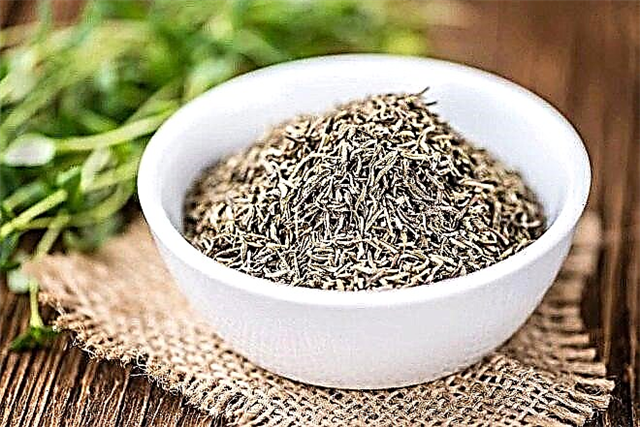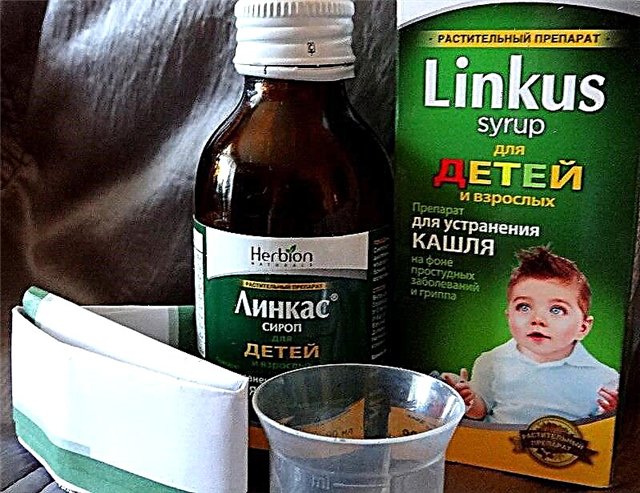
The herb thyme has long been considered one of the most "feminine". It was used in folk medicine to increase the fertility of women, and amulets for brides and expectant mothers were made from it. There are legends that say that thyme was also laid in the manger for the newborn Christ. But all this information in no way can give an exact answer whether it is possible to take thyme to pregnant women.

Allowed or not?
There are no direct contraindications to the use of thyme while waiting for the birth of a baby, but doctors advise to approach the issue very responsibly. The plant belongs to medicinal, it is listed in the appropriate register, and its medicinal properties may be unsafe for expectant mothers. Therefore, a woman "in position" should decide the issue of taking thyme with her attending physician.
In the absence of contraindications, which will be discussed below, pregnant women can use thyme in reasonable quantities without overusing it. There are also certain forms in which the medicinal plant will benefit and not harm.
Decoctions and aqueous tinctures made from thyme are usually used for therapeutic purposes; a woman can take them only with the knowledge, permission and appointment of a doctor - strictly if indicated.
With caution, it is recommended that pregnant women take baths with the addition of a decoction of thyme, and also do not abuse it as a spice when preparing meals for their daily diet.
There are no restrictions on external use for cosmetic purposes, and you can also drink thyme tea. Many expectant mothers, by the way, find its taste very attractive.


If we talk about the opinion of doctors on this matter, then it is twofold: some experts oppose the use of thyme and other medicinal plants during pregnancy, others do not mind. There are no clinical trials that could accurately answer the question of how thyme works on pregnant women. Such experiences would be considered unethical from a professional medical point of view. Statistics supported by scientific facts do not exist in nature. And therefore, in many ways, the decision whether or not to accept this weed during pregnancy is the responsibility of the expectant mother herself.
But if the visible harm has not been scientifically proven, it should be understood that its absence has not been proven one hundred percent. And therefore use the herb, as soon as such a decision has been made, should be done with caution in all cases.

Benefit
Thyme, also known as thyme, is a perennial plant with a pronounced diuretic, mucolytic and anticonvulsant effect.... Cute lilac flowers are even used in folk medicine to fight worms and other intestinal parasites.
The composition of the plant is unique in its own way. It contains: a large amount of thymol, gums, almost all B vitamins, vitamin C and a number of organic acids. This composition cannot, of course, make up for the vitamin deficiency in the body of a pregnant woman, but in general, thyme has a very beneficial effect on the expectant mother.
Thyme tea is useful for treating anemia, which affects most expectant mothers. Thyme will be useful if a sore throat occurs or a woman has a cold and suffers from a severe cough. It is strongly recommended for expectant mothers suffering from insomnia to drink tea with this wonderful herb at night, since its composition has a positive effect on the nervous system, gently soothes and helps to establish high-quality and sufficient sleep.


With reduced pressure, thyme acts as a compensatory agent that increases blood pressure. Moderate use of thyme eases the condition of the expectant mother with an exacerbation of hemorrhoids, cystitis, with increased flatulence.
If the expectant mother has a dry and unproductive cough, thyme tea will have an expectorant effect... This property can be adopted for bronchitis, pneumonia, but only with the permission of a doctor, since such conditions cannot be treated with one herb, and a woman must definitely choose medicines that are allowed during pregnancy.
The natural bactericidal properties of thyme are widely used in cosmetology and external use. A pregnant woman can rinse her throat with broth if it hurts, her mouth - with stomatitis. If there is a severe runny nose, then it is permissible to bury a decoction of thyme in the nose.
For skin problems, you can wash your face with a decoction of thyme, apply lotions to the affected area. You can also rinse your hair to strengthen it.


If a woman is suffering from heartburn, bloating, intestinal gas, a cup of tea with thyme will help reduce unpleasant manifestations. It is tea that is considered the optimal and safe form of thyme use while carrying a child. It contains the least essential oils. Speaking of tea, you should never confuse it with other forms, with the same decoctions or infusions.
For pregnant women, it will not be useful to exceed a reasonable amount, as well as uncontrolled use of concentrated decoctions and infusions, alcoholic tinctures and pure essential oil.
The recommended amount is no more than two cups of thyme tea per week. If this condition is met, a woman will be able to fully enjoy the pleasant taste of the drink and get the maximum benefit without risking either her health or the condition of the baby.

Possible harm and contraindications
There are great lovers of thyme tea. If a woman refers specifically to them, then the onset of pregnancy is of course not a reason to give up your favorite drink, but for sure - reason to reduce the amount of plant consumed... This is especially true for women who suffer from hypertension: they often have high blood pressure. The composition of thyme contributes to an additional increase in pressure, and this can significantly complicate and worsen the condition of the expectant mother.
If a woman has heart and vascular diseases, thyme is also not recommended for her. The herb is a real danger in cardiosclerosis and atrial fibrillation.
Additionally, it should be noted that the use of the herb is not encouraged if a woman has thyroid disorders, the threat of miscarriage associated with an increased tone of the uterine muscles. Contraindications are also considered diabetes mellitus, renal failure, liver dysfunction, severe psychological disorders and ailments of the central nervous system.
Remember that even women who do not have such contraindications may develop an allergic reaction to plant materials. An inadequate immune response can occur after ingestion of the herb, and with its topical use. There are frequent cases of developing an allergy to the smell of thyme - it is strong, saturated. Sometimes it is the aroma that aggravates the symptoms of toxicosis in the early stages and further promotes vomiting and nausea.


Features of admission at different times
It is not without reason that pregnancy is divided into three large periods, called trimesters. Each of them is characterized by its own characteristics, this also applies to the intake of plants considered medicinal.
Early dates
For women in the first trimester, it is better not to use thyme without special need. In the 1st trimester, the most important and responsible process of embryogenesis takes place, all internal organs and systems of the baby are laid, their functioning begins, and consistency appears between them. Any external and internal factors can adversely affect the fetus, especially since the placenta is still being formed and there is no reliable placental barrier.
However, thyme can be a good help if a woman is sick.... In case of pain and soreness, you can gargle with a gargle, if sores appear in the mouth, rinse your mouth. In the process, they spit out the broth, do not swallow it. It is believed that essential oils of thyme have abortive properties and can theoretically lead to miscarriage.
You can drink tea, but not more than a cup per week. It is important not to consume this drink on an empty stomach.
Tea can be drunk only if there are no contraindications listed above. And for this reason, it is worth asking what your doctor thinks about such a wonderful aromatic drink.

Late dates
The second trimester is the quietest when the baby begins to grow actively. It is believed that all the basic risks of spontaneous abortion, fetal development fading are reduced, and therefore somewhat more is allowed than in the first trimester. You can slightly increase the amount of tea to two cups a week, but do not forget that the effect of the herb is cumulative and can lead to surges in blood pressure.
For this reason, approximately from the fifth month of pregnancy, doctors advise to limit the use of thyme to the maximum, especially to women prone to increased blood pressure, suffering from edema, gestosis, pathological weight gain.
In the 3rd trimester, the functional load on the kidneys increases, and, given the diuretic effect, it is not recommended to take thyme, so as not to increase the production of urine. It is important to know that thyme is able to increase the tone of the muscles of the uterus - non-compliance with the recommendations can lead to premature birth.

Thyme essential oil should not be used for any purpose in any trimester.
How to cook?
For rinsing the throat and mouth, instillation into the nose is prepared decoction or infusion. In the first case, take 2 tablespoons of dry thyme, which can be bought at a pharmacy, and pour a glass of hot water. The mixture is kept in a water bath for up to a quarter of an hour, after which the resulting liquid should be cooled and filtered. It is impossible to store the finished broth for more than a day. It is best to keep it in the refrigerator, and it should be slightly warmed up before the next rinse.
For external use and cosmetic purposes, it is better to prepare an infusion. In this case, the amount of thyme should be about 3.5 tablespoons per half liter of water. Thyme is brewed with boiling water and infused in a thermos or under a glass lid for about five hours. Then the liquid, as in the first case, should be filtered. For bathing, add it to water, for topical use it is used without dilution. The infusion should also not be stored for more than a day. If signs of a local allergic reaction appear (redness, itching, swelling), you should immediately stop using the plant and consult a doctor for allergy treatment.
Thyme tea is available both loose and packaged. In both cases, it should be brewed with twice the amount of water recommended by the recipe. It is safer for a pregnant woman. If you bought tea bags made especially for children, then the dosage of herbal raw materials in them is already lower, and they can be brewed according to a recipe. You can make green tea yourself by adding a small sprig of thyme to it.
Such tea with lemon and honey goes well if the pregnant woman is not allergic to such products.


An allergic reaction can manifest itself during pregnancy even in those women who did not suffer from it before the “interesting situation”. This is due to the restructuring of the immune system during gestation. Therefore, carefully monitor your health after a cup of thyme tea. If there is nausea or dizziness, vomiting has opened, the stomach is "blowing", diarrhea has appeared, you should refuse to use the drink in the future. You need to drink plenty of water and take sorbents, for example: activated carbon or Enterosgel.
The presence of thyme as a spice implies the use of the most oily part of the plant - seeds, and the essential oils of this plant are contraindicated for a pregnant woman. Therefore, you should not add spice to soups and main courses, to baked goods, so as not to cause negative effects. In addition, spices whet the appetite, thyme is not an exception, and overeating at any time is dangerous with serious complications in gestation and childbirth.




